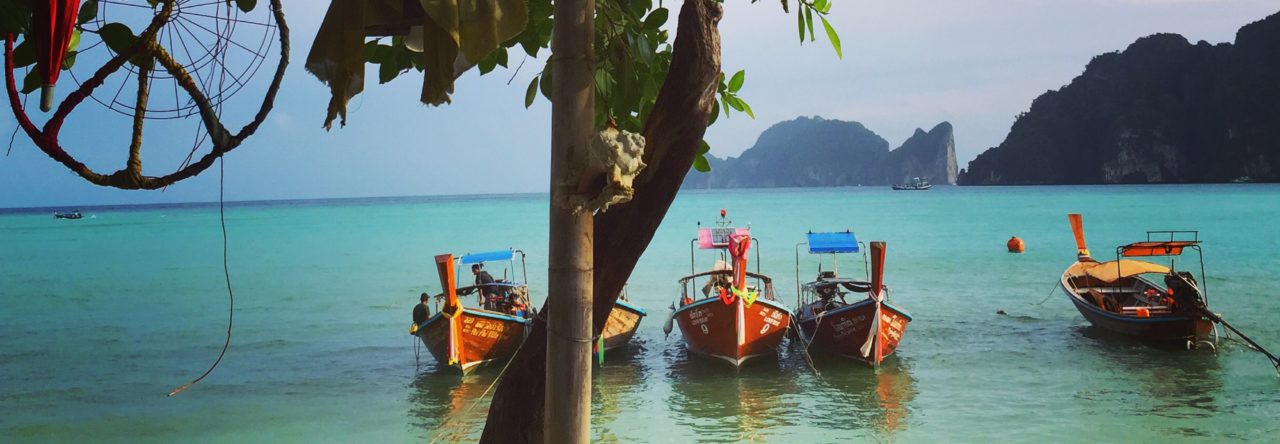“Shit, busy would be an understatement. But the article said it was pristine and peaceful.” Every traveller has muttered words to that effect. Should it not occur to us that we went there, because of the guidebook, or that travel site we stumbled upon. AND so did all the others.
The LP effect. This often useful publication has been known for the influence it exerts on certain businesses and particular destinations. Recommend one cafe in Goa, and that cafe becomes the place to go for the average visitor. Suggest one beach over another, and that becomes the preferred beach for the masses, no matter if just over the headland there is an even more picturesque, and of course quieter stretch. Travel in India, and see that if a cafe has been recommended by the LP, you’ll see signs all over the business exterior shouting about it. You may also find that other enterprises have opened up with the same name, knowing full well that any recommendation in the LP would boost their takings hugely. Such is the influence travel writers can have.

This touristy road in Beijing, China became so popular the authorities have now banned tour groups.
As more people rely on travel blogs, Youtube vlogs, Instagram, and other online sources for their travel recommendations, the internet most certainly has more influence, given its wider reach, and the potential for some place going ‘viral’. It is precisely that influence that should arguably be used more cautiously.
This summer, something like this seems to have happened with a particular area of Cornwall, a rural coastal county of small communities in southwest England. Cornwall’s economy relies heavily on tourism, which comprises around 24% of its GDP. So it is an area that is well used to tourists, and both the negative and positive impact that tourism can ultimately bring. This summer in the UK has so far been a particularly hot one, some say to rival the very hot one of 1976 that everyone of my generation’s parents talk about. The one that was so blisteringly hot, some say gave rise to punk music.
So along with that heat, and probably also aided by the weakened pound against pretty much every world currency, but most importantly the Euro, British tourism has seen an increase. Despite the weakened currency, great news for the United Kingdom’s economy, one would assume. Cornwall has been on the receiving end of this increase, some reports say 20% on the previous year.
The issue is, the increase in tourist numbers has been spread very unfairly. The popularity of a British TV series Poldark, has apparently led to an increase in visitors to certain beaches, but furthermore, social media campaigns that have focused on other beaches in the county have led to some becoming overcrowded to the point of stupidity. Visit Cornwall, the official tourist board has had to stop promoting Porthcurno Beach and Kynance Cove, as their social media campaign was apparently just too good. It was apparently just too much, just too tempting for the masses to visit these beaches, that things just got totally out of hand. I’d like to know if the marketing employee responsible got a promotion or a telling-off for creating a social media campaign that was too successful.
Cornwall is largely rural with many single track roads leading to its beaches, and these are not built for the amount of traffic you would expect to see in a large town or city. Gridlock ensued. As much as Cornwall’s economy needs these tourists, these tourists need to spread themselves out more evenly throughout the 1,376 sq miles, and not all congregate on a handful of beaches. And, who better to influence the tourists that those that produce creative content in the tourism industry, whether professionally, or as a hobby.

To help places deal better with tourism, visit off-season. This is Fowey, Cornwall in May 2014. Few tourists, better environment. Help the businesses at a slow time. But don’t tell anyone else.
As members of the one of the world’s largest industries, and one that is growing fast, travel writers, tourist boards, travel vloggers and bloggers, should really think about what they recommend and how much they recommend.
As I write this, I realise there’s a certain irony, since I do recommend destinations on this very site. But I am also aware that I don’t have the readership levels or the influence of the tourist boards and large sites. And the problem is, it is not really possible to mildly recommend a place, to help out travellers, but not too many travellers, or in the case of a tourist board to actively try to achieve popularity, but not too much popularity. Either you recommend somewhere or you don’t.
Perhaps the only way forward is that everyone just needs to stop making nice places famous, and we go back to a time before the internet, even before the LP, when everyone could find their own place, and only told others by word-of-mouth. But, I bet in those days, you’d still find a crowded beach.

Leave a Reply